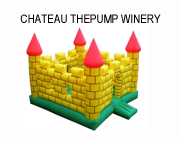Chateau Margaux, Chateau Talbot, ... are very famous vineyards in France, specifically in Bordeaux. The use of the term 'chateau' is highly regulated in France and not everyone can use this term unlike in other countries such as the USA. A news story about the French fighting to limit the use of this term only to French estates came to a pause on Tuesday at the European Union’s wine management committee in Brussels, Belgium.
The European Union’s wine management committee was supposed to approve an application to allow US wine exports to Europe to use the word “chateau,” in what one EU official described as a “purely technical rubber-stamping exercise.”
But this was not accounting for the passionate rivalry between France and California wine producers dating back let's say to the blind tasting competition from 1976 "the jugement de Paris" in which a californian wine won.
French legal representatives will get an extended delay to present alternative proposals. One may wonder if people would prefere the term 'castle' to 'chateau': 'Chateau Sainte-Michelle' would be called "Castle Sainte-Michelle" or "Chateau Diana" would become "Castle Diana". It does not sound good to me!
Personally, I have no doubt that the use of the word 'chateau' enhances the brand as it premiumizes it, and it makes it more sound like old/traditional/ and European style.
It is not deceiving just good branding as it enriches the product quality perceptions. It creates positive co-branding and country-of-origin effects.
It is not deceiving just good branding as it enriches the product quality perceptions. It creates positive co-branding and country-of-origin effects.
1/3 of the wines produced and exported from the US goes into Europe. Mondialization and globalization of the wine industry may explain why the term chateau is less discriminatory to French vineyards now than before.
However, the problem gets more complicated when letting the use to other production areas. Thus, one may expect a "Chateau Hong Kong" or a "Chateau India" to appear soon and then consumers may not know what they are really getting if the term becomes so generic.
I do not think we will easily agree on generic terms with a single worldwide regulation to apply. Hence, one may rather encourage differentiation and region specificities to entertain diversity. In a way a culture is made to tell you where you are coming from and where you are going to.
Who knows what 'cognac' would mean today if someone a long time ago had not protected it?
Source: Reuters India


No comments:
Post a Comment